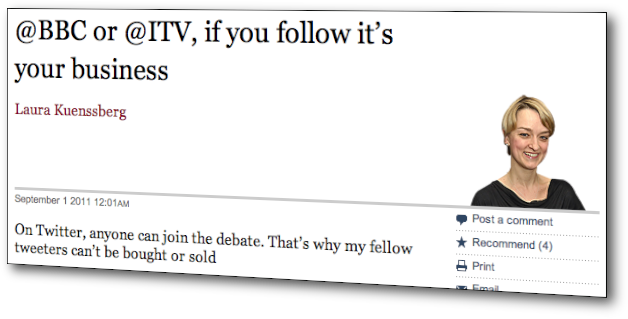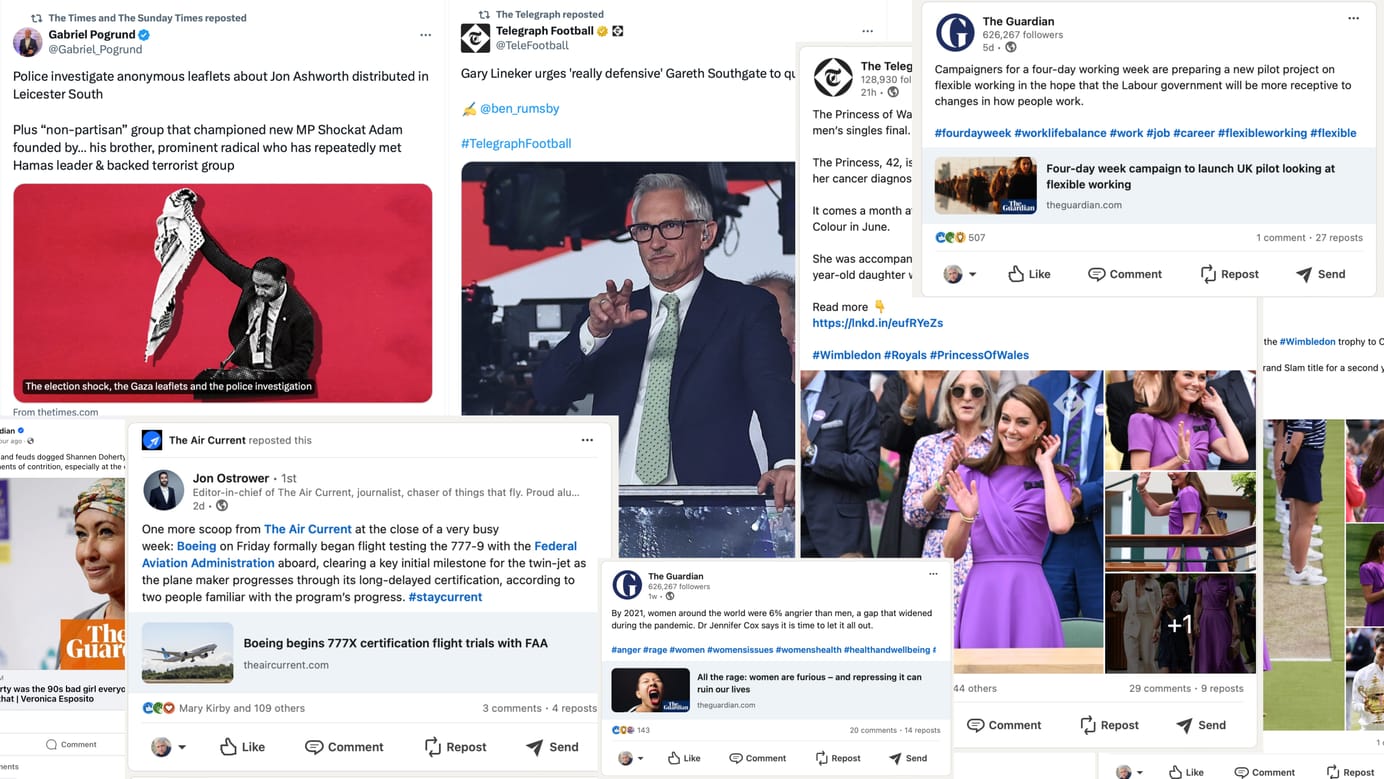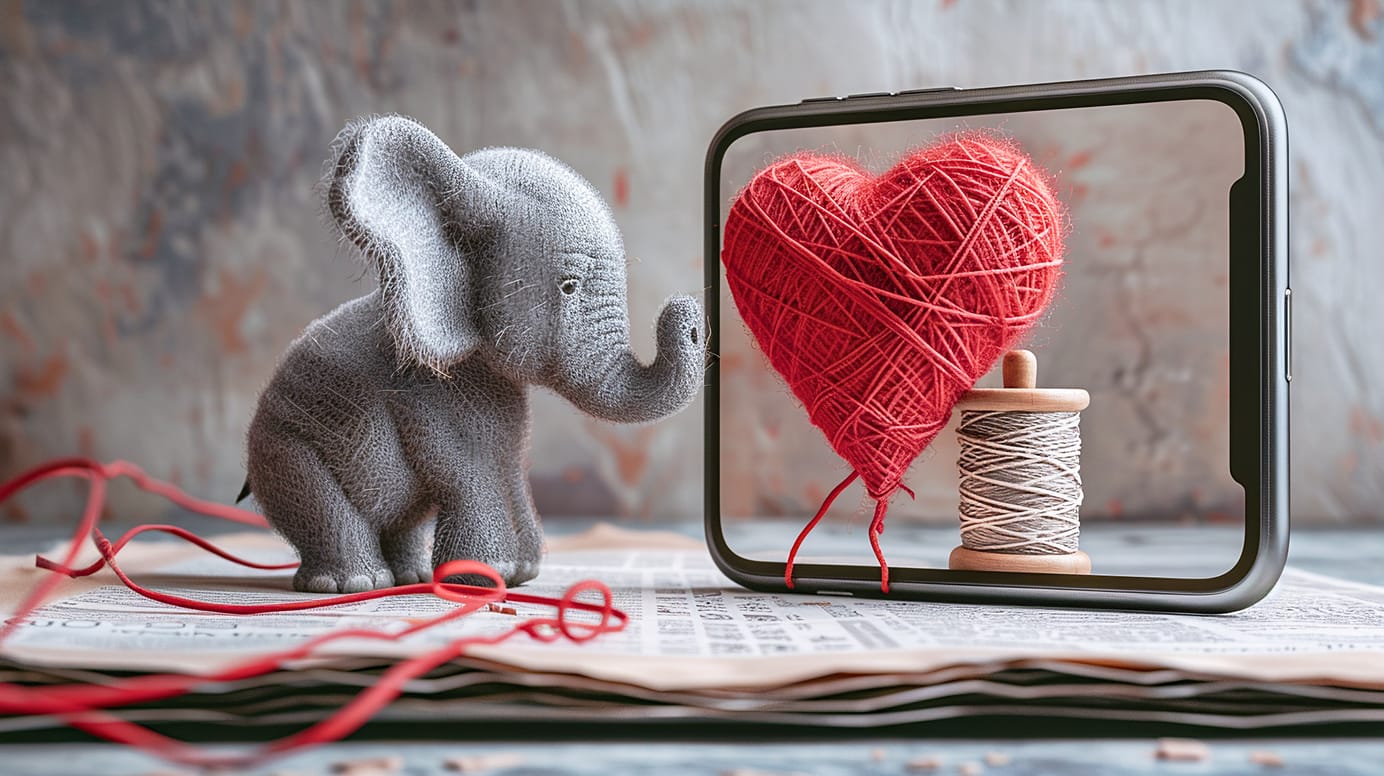
Journalists don't own their Twitter followers
Laura Kuenssberg makes the case of why she can take her Twitter followers with her.
A few weeks ago, a rather well-judged piece of linkbait set the journalism social media world aflame, as the BBC was accused of “losing” large numbers of followers when Laura Kuenssberg decamped to ITV and took her Twitter account with her. I was, as you may recall, rather sceptical of that argument.
Well, somewhat after the event, she’s decided to weigh in herself, behind the sheltering Great Paywall of Wapping:
If the Editor of this paper were to suggest that he owned you just because you are reading these lines, you might understandably be puzzled. Perhaps, not unreasonably, you would be downright irritated that the choice you made to read a particular article in a particular newspaper on a particular day could make you the property of a particular journalist.
And, in light of the growing evidence of how very efficient Twitter has become as a news distribution medium, I find this to be a rather revealing statement:
But, more importantly, what the fuss did demonstrate was how central online reporting has become to the work of journalists. No doubt, having started tweeting as an experiment two years ago during the party conference season, it became almost as important to me to break stories on Twitter as it did to get them on air on the BBC’s rolling news channel.
It’s a good, thoughtful piece, that, to me, really helps undermine the corporate-structure centric blog post that kicked off this whole discussion. It’s about the communication between reporter and their interested audience. It’s about speed. It’s about relationship.
Well worth the price of admission. 🙂
Sign up for e-mail updates
Join the newsletter to receive the latest posts in your inbox.










